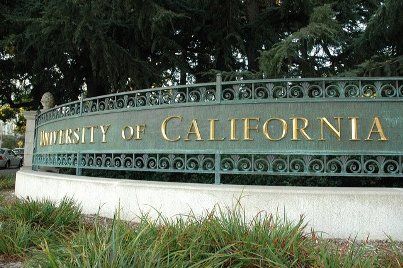UC drops investments in response to activists’ gripes
by Chris Reed | December 31, 2015 11:16 am
 For the second time in three months, University of California pension administrators have ended their investments in specific industries after receiving complaints from student activists, spurring criticism that investments should be focused on returns — not on making political or social statements.
For the second time in three months, University of California pension administrators have ended their investments in specific industries after receiving complaints from student activists, spurring criticism that investments should be focused on returns — not on making political or social statements.
The Los Angeles Times broke the story [1]this week of how UC pension officials had sold $30 million in holdings in companies that run private prisons. Such companies are criticized by activists who believe they are unaccountable and that the U.S. criminal-justice system is much too quick to consign young offenders to prisons for long periods, making it highly unlikely they will lead productive lives. The UC decision was both applauded and criticized, per the Times:
“By selling their shares they’re sending a message … that the UC system is against human rights abuses,” said Kamilah Moore, who graduated from UCLA in 2014 and is a field organizer for the Afrikan Black Coalition, a student advocacy group. …
Xavier Harris, who graduated this month from UC Merced, where he was a member of the black student union, said he was encouraged by the move. “It shows [administrators] are listening when we said this is an issue that affects our friends and families,” he said. “They should be in the business of education, not profiting from incarceration.” …
Ivo Welch, a finance professor at UCLA’s Anderson School of Management, said that UC administrators may be too sensitive to outside pressure.
“If you start going down the list of Fortune 500 companies, I’m sure we can come up with reasons we should divest from each one,” he said. “I’m almost left speechless by how we pamper student whims.”
Previous divestment decision also based on risk
In September, UC sold its $200 million worth of shares in companies in the coal and oil sands extraction business. UC officials had a slightly different tone in describing this divestment, acknowledging student protests but also saying there were legitimate questions about risks. This is from a Reuters report[2]:
Chief Investment Officer Jagdeep Bachher said slowing global demand, an increasingly unfavorable regulatory environment pose insurmountable challenges for coal mining companies.
The profitability of companies focused on developing crude from Canadian oil sands has also fallen amid low global oil prices, Bachher said, making those companies increasingly risky investments.
But the next divestment target of student activists — Israeli-owned businesses or corporations that do considerable business with Israel — seems likely to be vastly more difficult to achieve. Such a politically fraught decision would be made by UC regents, not by staff. And the man generally considered the most influential regent — billionaire financier Richard Blum, husband of Sen. Dianne Feinstein — is an intense critic of the BDS (Boycott Divestment Sanction) movement that seeks to punish Israel for its treatment of Palestinians.
In 2013, he abstained [3]from joining an otherwise-unanimous vote to approve the selection of Sadia Saifuddin as a student representative on the regents board in 2014-15. Saifuddin was a leader of the BDS movement at UC Berkeley and belonged to campus groups that the Simon Wiesenthal Center said were explicitly anti-Semitic.
More recently, Blum has fought for a tough UC speech code protecting Jewish students from what he depicts as steadily escalating intimidation and bullying from UC students associated with the BDS movement and other anti-Israeli groups. This led Los Angeles journalist Conor Friedersdorf to write a piece [4]for The Atlantic about free speech on campus that compared Blum with students at UCLA who seek to regulate and punish other students for being insensitive to or insufficiently concerned about minorities.
- story : http://www.latimes.com/local/education/la-me-uc-divestment-prisons-20151226-story.html
- report: http://www.reuters.com/article/california-divestment-university-idUSL1N11G04220150910
- abstained : http://www.jns.org/latest-articles/2013/7/17/bds-activist-voted-in-as-university-of-california-student-regent#.VoMxpE9WWYk=
- piece : http://www.theatlantic.com/politics/archive/2015/10/the-anti-free-speech-movement-at-ucla/410638/
Source URL: https://calwatchdog.com/2015/12/31/uc-drops-investments-response-activists-gripes/